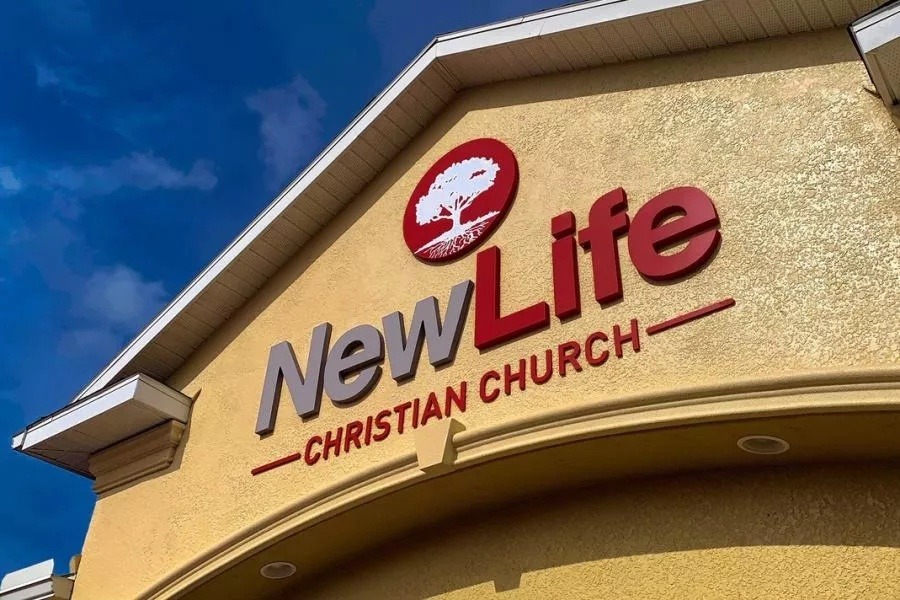4 things and 12 Steps for Recovery from Mormonism
In the interest of offering a helping hand in Recovery from mormonism here are four things I want you to know and the following is an adaptation of the Twelve Steps for help in recovering from Mormonism.
1. Healing takes time. Be kind to yourself.
Maybe you feel angry. Maybe you don’t know how to even begin telling your loved ones what you’ve been going through and how you feel. Maybe you’re scared shitless. Maybe you feel amazing one day and terrible the next. However you’re feeling, chances are it’s totally normal. Losing your worldview is a big deal, and your brain is going to need some time to recover and unpack your life experiences with this new perspective you’ve gained. You’re likely to experience a whole range of emotions in the coming weeks, months, and even years — and that is, say it with me, NORMAL!
2. Don’t you dare blame yourself.
In case you don’t know this already, you are not to blame for losing faith in a demonstrably false church. But if you grew up Mormon, you’ve likely been conditioned since birth to believe that there is no good reason to leave the LDS Church and that Satan is capable of sophisticated trickery, so you might still experience random feelings of guilt and “but what if it IS true?” — even if they don’t make logical sense to you.
You’ve probably seen other people leave the LDS Church, and watched it cause pain to your community. I imagine you hate the thought of putting your loved ones through that pain. But it’s not your fault. You are not responsible for people hurting because you don’t believe something they believe. It still sucks to watch people you care about suffer, but DO NOT blame yourself in any way. Just try to remain loving, and if someone’s treatment of you is damaging, be strong enough to distance yourself from it.
3. Don’t expect telling people to go perfectly.
There are certain strategies I’d advise when talking to Mormons about your faith transition — remaining calm, using a lot of “I feel” statements, and avoiding attempts to convince THEM that the church is falsely being a few of them. (They will almost certainly double down when confronted with evidence that their beliefs are false.) But at the end of the day, you’re human. Unless you’re an absolute wizard in mindful communication (and are somehow able to emotionally detach yourself from what is likely one of the most emotional things you’ve ever gone through), you’re not going to say all the right things. You’re not going to be able to generate a perfect response for everyone. So don’t put that kind of pressure on yourself. Just do your best to be authentic and non-accusatory, and forgive yourself for the ways you will inevitably fall short.
If I could go back in time and tell people I was leaving the LDS Church all over again, I’d do it completely differently. But you learn through experiences, and I don’t think it’s healthy to delay being authentic with your loved ones just because you’re worried you won’t be able to say everything perfectly. (By all means, give yourself the time you need to feel strong and stable enough to enter a potential lion’s den, but don’t burden yourself with the task of becoming a zen master before opening up to people you care about.)
4. We are all the products of our experiences.
You will have SO many new ones that make Mormonism feel far less important.
I’m not suggesting that by the time a year or two has gone by you won’t give a flying fuck about Mormonism. I don’t think that’s realistic when it was something that meant so much to you — especially if you grew up in it and it’s still a huge part of your family’s lives. But the more you live your life without Mormonism, the less significant it will feel. You will learn things about yourself and the world that make it seem smaller, and you’ll likely recognize what a tiny drop it is in the ocean of global ideologies.

Twelve-Step Program For Recovery From Mormonism
Thousands of people suffering from the devastation of alcoholism have been helped by following the “Twelve Steps” developed by Alcoholics Anonymous. Many other programs dealing with recovery from drug addiction, over-eating, and other addictive behaviors have adapted AA’s Twelve Steps. Those leaving Mormonism usually are dealing with similar problems of recovery, and the following is an adaptation of the Twelve Steps for help in recovering from Mormonism.
- I admit that I am powerless to change the fact that I have been Mormon for a good part of my life, whether because I was born to Mormon parents, or because I voluntarily converted.
- I realize that I have within me the power to free myself from the harmful part of my Mormon past (with the help of a higher power if I believe in one), and that I am no longer bound by promises or covenants which I was induced to make based on the false promises of Mormonism.
- I make to myself a firm promise to listen in the future only to reason, rationality, and factual evidence in making decisions about how I should live my life, rejecting all emotional appeals, guilt-inducing threats, myths, pretty stories, promises of castles in the air, and superstition.
- I make a searching and fearless moral and intellectual inventory of myself with the purpose of recognizing in myself those weaknesses which induced me to remain Mormon for so long.
- In Recovery from mormonism I itemize (preferably in writing) to myself and to a trusted loved one (and to a higher power if I believe in one) the specific reasons why I can no longer be Mormon.
- I make the decision to do what is right, and to accept whatever the consequences may be for acknowledging the truth and living accordingly.
- I begin working through each of my Mormonism-related problems of mind, body, relationships, and (if I believe in such a thing) spirit.
- I make a list of those for whom it would be important to know of my decision and the changes I am making in my life, and prepare myself emotionally to discuss my decision with them all, realizing that many may react with hurt, anger, emotional outbursts, or other unpleasantness.
- I discuss my decision with them (except in those cases where I think it would cause greater harm to do so than not) in a calm, friendly and loving way, without argument.
- I continue to take personal inventory, and where I find artifacts of Mormonism, I carefully consider whether they should continue to be a part of my life, or whether I should discard them.
- In Recovery from mormonism i seek out truth wherever I can find it, whether religious or secular.
- Having had an awakening and renewal as the result of these steps, I try to be helpful to other recovering or doubting Mormons, and to practice these principles in all of my affairs.
12 Steps By Matt B & Richard Packham
World Religions
Read also:
The Church Of Jesus Christ | Goals, Beliefs, Practices and More
Encyclopedia of Mormonism | Background and What does it contain?
Mormon missionaries | Common questions about Missionaries
Mormon beliefs | What are the core beliefs of Mormonism
Mormon marriage | Common questions about marriage in the LDS
Mormon religion | Meaning, worship, holy book, rules &More
Pagan religion | History, Types, beliefs, worship &More
Sadhguru Religion | Brief, Ideology, Philosophy &More..



